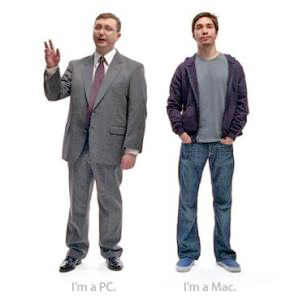Who Will Be the First Trillion Dollar Company?

Over the years, we've grown accustomed to big numbers. In the contemporary financial age, enormous sums of money-millions, even billions-are figures so easily thrown around that they've lost their shock value almost entirely. In the near future, however, market analysts predict we'll be introduced to a new number, a bigger number, as multiple enterprises compete to be the first public company to reach a trillion dollar market capitalization. The competition, it seems, comes down to one of the strongest rivalries of the 21st century, a great divide of our generation: Apple versus Google.
Years ago, during the dawn and Golden Age of personal computing, this competition would have been split between Apple and Microsoft, invoking the sentiments of the infamous "I'm a Mac"  television ads in which actor Justin Long, the former spokesperson for Apple, cleverly insults the opponent, Microsoft, and proclaims his eternal faith for the Macintosh computer. Or if you were on the other side of the glass, the "I'm a PC" commercials, in which Sean Siler, an actual Microsoft employee, proudly porting an ever-stigmatized button-down shirt, tie, and glasses, declares his Microsoft faith with gusto. (Image source.)
television ads in which actor Justin Long, the former spokesperson for Apple, cleverly insults the opponent, Microsoft, and proclaims his eternal faith for the Macintosh computer. Or if you were on the other side of the glass, the "I'm a PC" commercials, in which Sean Siler, an actual Microsoft employee, proudly porting an ever-stigmatized button-down shirt, tie, and glasses, declares his Microsoft faith with gusto. (Image source.)
These campaigns defined and solidified the consumer split between two of the most powerful tech and computing giants, and set the stage for the fierce competitive spirit that has since sealed the spirit of the industry.
The battle at hand, however, is not happening in 1999. It's happening in the present age of personal computing; a time of not only desktop computers, but laptops, tablets, smartphones and mobile devices. We have entered an era in which longtime Apple competitor, Microsoft, unfortunately just isn't in the running. Google, maker of Android devices, has entered the arena.
As both Google and Apple sit eagerly poised to hit the trillion dollar mark and earn the title of the world's leading operating systems provider, it seems the market may finally name one of the two the game's final winner.
Two years ago, the immediately predicted champion would have been Apple. The company's market dominance, fueled by iPhone popularity, strong customer loyalty, and an unprecedented ability to completely reinvent and redefine the user experience across a variety of platforms, had experts from all corners predicting an impending trillion dollar high. Google's recent success with Android and Google Glass, however, has leveled the playing field. In light of Google taking over Apple's number one spot as the world's most valuable brand for 2014, a ranking Apple had previously held for the three consecutive years, it's safe to say the competition has changed.

Ultimately, this will come down to whoever is able to capitalize on the next big thing. For Apple, that may mean a successful release of the rumored iWatch or Apple Health. For Google, acquisitions may be more important, as the company makes bold strides to identify markets on the brink of popularity.
As the battle persists, both teams will rally. In all, the competition is good for consumers, who can be sure that they will ultimately benefit from the fruits of this ongoing rivalry.
Anna Gale is a marketer at Fueled, the leading iPhone app builder in New York City, renowned for its award winning mobile design and strategy.

Subscribe to Our Newsletter!
Latest in Marketing








